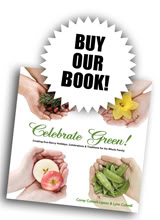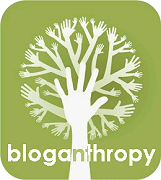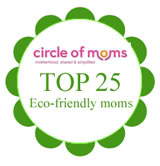Sustainable Passover
Passover is a Jewish holiday celebrating the Israelites’ liberation from Egypt.
The seven-day celebration (this year, April 8th-16th) also includes elements that mirror our current environmental crisis, offering biblical wisdom to offset and heal our modern dilemma. So, many contemporary Jews see Passover as the perfect holiday to highlight sustainability, resourcefulness and respect for the Earth and all living things.
Before the Passover holiday begins, a Jewish home is to be cleaned thoroughly with every nook and cranny free and clear of chametz or leavened grains, which are not allowed during this week. At the same time, Jews also seek to identify and cleanse their spiritual chametz: ego, desire, ungratefulness, etc.
For the home: Buy family and eco-friendly cleaners or make your own from chemical-free household staples such as baking soda, vinegar and lemon juice.
For yourself: “Want not, waste not” is a common Jewish phrase. Take stock of ways you can simplify your life, acquire less, use what you have, and throw less away.
For the family: Gather the family, and do as Eco Rabbi (Jack Reichert) suggests by, “…seeing how you can include ways to heal our planet in your day-to-day life, specifically, how you can implement the three ‘R’s of environmental awareness: Reduce, Reuse, Recycle.” What three new steps can your family take this year to walk more lightly on the Earth?
Food is an important aspect of Passover, as it is with many holidays (thankfully!) but the most important meal is the Seder, held on the first and/or second nights of the holiday. Important components of the Seder include wine, matzah (unleavened bread) and the Seder plate, which includes six foods symbolic of the Jewish people’s exodus from Egypt.
The Passover meal is also symbolic of springtime. According to www.TheJewandTheCarrot.com, “…the roasted lamb bone celebrates lambs born in spring; karpas symbolizes the first green sprouts peaking out of the thawed ground; and a roasted egg recalls fertility and rebirth.”
Wine: Choose kosher wine that is organically or biodynamically grown from a location as nearby as possible. Here is a list of options from The Jew & The Carrot.
Matzah: Buy or make organic, non-genetically modified whole wheat or spelt matzah.
The green Seder Plate (may vary by community, family and cultural sub-group)
Maror - Freshly grated organic horseradish root, cooked organic beets and organic Fair Trade sugar. Or, organic romaine lettuce.
Charoset - Organic walnuts or Fair Trade pecans, organic/locally apples, organic cinnamon, and organic, sweet red wine. If you choose, add organic dates and local honey.
Karpas - Organic and locally grown (or grown by you!) parsley, celery, onion or potato. Dipped into salt water or organic, kosher for Passover vinegar.
Z’roa - Organic, locally/ethically raised, free range lamb or goat (shankbone) or chicken (wing/neck). Going vegetarian is an even greener option; use an organic beet instead.
Beitzah - An organic, free-range egg or one from your own or local chickens.
Chazeret (optional) - Organic romaine lettuce, celery or fresh, or organic horseradish. (In lieu of a bitter vegetable, dish of salt water.)
For healthy, festive and eco-wise Passover recipes, click here and here.
Resources
PETA: Celebrate a compassionate vegan Passover
























